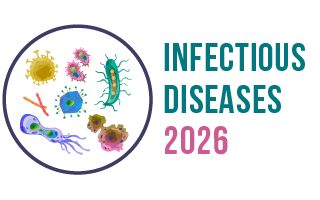4th International Conference on
Infectious Diseases
September 09-10, 2026 | Barcelona, Spain

Address: Avinguda Del Maresme 78 Ronda De Dalt Exit 15, 08940 Comella de Llobregat, Barcelona, Spain
Sepsis/Septicemia
Sepsis, or septicemia, is a life-threatening condition caused by the body’s overwhelming and dysregulated response to infection. This immune overreaction can lead to widespread inflammation, tissue damage, organ dysfunction, and, if untreated, fatal outcomes. It can arise from infections in any part of the body, including the lungs, urinary tract, skin, or abdomen, making early identification crucial. Timely diagnosis and prompt medical intervention significantly improve survival rates. Research advancements continue to enhance diagnostic tools, including rapid biomarkers, molecular tests, and AI-assisted detection methods. Current management focuses on rapid infection control, fluid resuscitation, antibiotics, and organ support. Increasing public and clinical awareness, along with global sepsis prevention strategies, remains essential in reducing worldwide sepsis-related mortality. Sepsis remains a major global health challenge, especially in low-resource settings where delayed diagnosis is common. Strengthening healthcare systems, improving infection control practices, and promoting early warning protocols are vital steps toward reducing sepsis incidence and mortality.
